One man's generosity of spirit
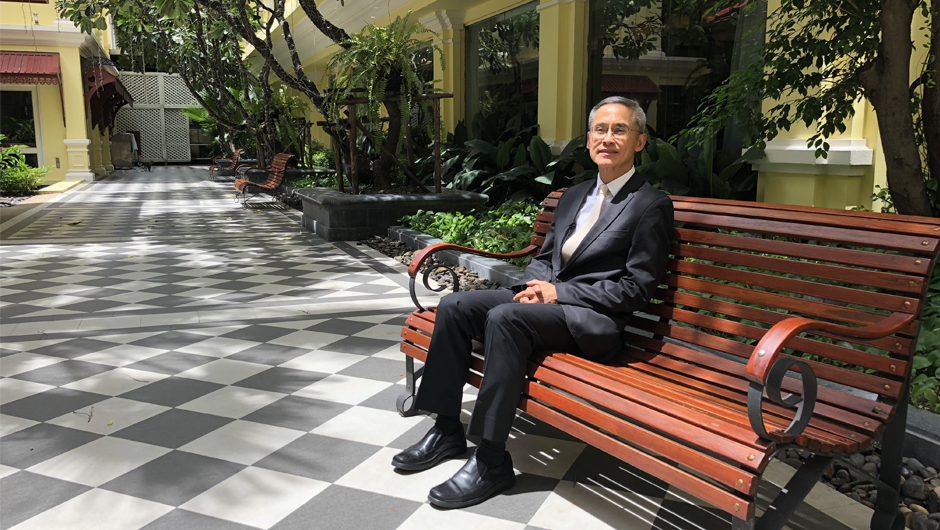
His credentials precede him. First United Nations (UN) Independent Expert on violence and discrimination on sexual orientation and gender identity. UN Special Rapporteur. Professor Emeritus of law at the Chulalongkorn University in Bangkok, Thailand. Educated in the United Kingdom obtaining his undergraduate and graduate law degrees from Oxford University, and holding a degree on European law from the Free University of Brussels.
Meet Prof. Vitit Muntarbhorn.
“I’m just a small person. Mine is a humble story that tries to generate hope towards human rights’ serendipity,” said Muntarbhorn, despite his impressive background, when asked to say something about himself.
Words like serendipity, mutuality, humanity, and spirit would later fill the conversation with the distinguished Thai professor. Notwithstanding his petite frame, his solid body posture made him look statelier than he already he was, his permanent smile radiating the lightness of his spirit.
Shared humanity
At 65, Muntarbhorn is still constantly on the move, but never fails to look back. He recalled his first years in development work where he helped raise funds to build schools and roads in northeastern Thailand. “The village people didn’t have much, but they gave us their cushions and mats to take home as presents. I could never respond proportionately to the kindness they showed us,” narrated Muntarbhorn.
That same kindness sustains Muntarbhorn’s human rights work that extends beyond Thailand’s borders. According to him, human rights are also about love and friendship – nurturing a sense of understanding, respect, and care for a shared humanity.
Muntarbhorn is a steadfast member of the Regional Working Group for an ASEAN Human Rights Mechanism. He does this as a volunteer, reaching out to government institutions and civil society organizations to broaden the discussion and support for human rights protection.
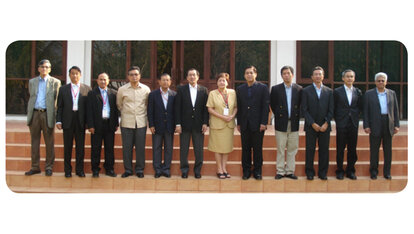
Muntarbhorn (2nd from right) with members of the High Level Panel for the establishment of an ASEAN human rights body
In 1993, the foreign ministers of the Association of Southeast Asian Nations (ASEAN) articulated the need for an intergovernmental human rights body. This prompted the creation of the Working Group in 1995. Since then, the Working Group, driven by a spirit of participation, has facilitated dialogues.
One of the Working Group’s shining moments was when ASEAN sought its assistance in the implementation of the Vientiane Action Program (VAP) in 2005. The VAP emphasized the need for the institutionalization of human rights, and therefore the necessity for an intergovernmental governance. In a journal article of the Department of International Relations of the Australian National University published in 2013, it stated:
At crucial moments before and after 2004, it was the Working Group for the Establishment of an) ASEAN Human Rights Mechanism, a track III actor, which both inserted human rights into ASEAN discussions and forged the link between protecting those rights and the continuing success of ASEAN’s security goals.
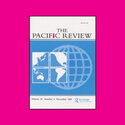
The adoption of the ASEAN Charter in 2008 that provided the legal status and institutional framework for ASEAN later saw the establishment of a variety of human rights mechanisms: ASEAN Intergovernmental Human Rights Commission (AICHR), ASEAN Commission on the Rights of Women and Children (ACWC), and ASEAN Committee to Implement the Declaration on the Protection and Promotion of the Rights of Migrant Workers.
“The mechanisms that we have now are means to an end, and the end is the promotion and protection of human rights for all. There’s still a very relevant role of the Working Group in terms of sustaining the gained momentum,” explained Muntarbhorn.
The Working Group is the only human rights organization listed in the ASEAN Charter as “entities associated with ASEAN.”
Never frustrated
This momentum, however, seems to be faltering in the region recently. A number of countries in ASEAN are backsliding in civil and political rights, and in the protection of even the most fundamental human rights.
“Friends ask me, ‘Aren’t you frustrated with the human rights situation?’ I tell them ‘No, I’m never frustrated,’” Muntarbhorn said. “The defense of human rights is a long-term, never-ending process, cyclical sometimes. We must have a sense of commitment to realize this longitudinal element involved with human rights.”
Muntarbhorn pointed out that his unwavering optimism stems from an understanding that human rights are not insular. “They go with democracy. They go with peace. They go with sustainable development. That’s the package, usually. Let’s not generalize too much about people and organizations. Humans aren’t monolithic, and we always find entry points for gradual changes.”
“I’m not a great aspirant to revolutionary changes. As a teacher, if things move gradually, I am still encouraged even if it might be too slow for some,” he continued. Muntarbhorn, who teaches law, regularly organizes small pizza parties with his students. He mentioned that he always tries to cultivate a democratic environment in the classroom where the students can participate in the discussions in different ways.
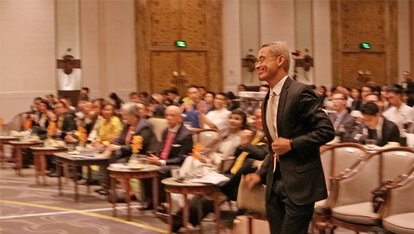
Sense of balance
Muntarbhorn spontaneously answered questions whether they were about his work on diplomacy, his professorial job, human rights advocacy, and life in general. He was articulate and equally natural with his responses especially when he started talking about a balanced lifestyle.
“I may not always be pleased with myself, but I’m usually in a good mood towards others,” revealed Muntarbhorn. “I run and play sports, and do yoga. These give me the endorphins that translate to a healthy positive attitude.”
Muntarbhorn, who came to the interview in a well-ironed suit, and sporting a drawstring bag characterized himself as someone with simple needs. This modesty is what has also been keeping him with the Working Group for three decades now, offering his services pro bono. He considers himself lucky for having the opportunity to engage with different entities, “opening the space and finding channels of hope.”
“I approach these matters slightly from a non-material angle. I’m not religious, but I think there’s a certain spirit to it, and a lot of my work is inclined that way. It’s about the spirit, and the spirit matters,” stressed Muntarbhorn.
The road to human rights may be bumpy, but there will always be people with generous spirit like Muntarbhorn showing the way.
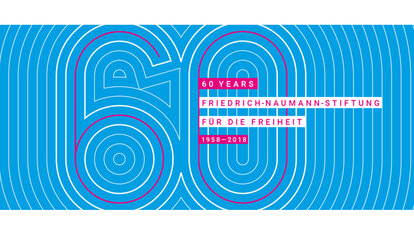
The Friedrich Naumann Foundation for Freedom (FNF), a German liberal organization that promotes the protection of human rights, has been supporting the Working Group since its inception. Muntarbhorn described the partnership between the Working Group and FNF’s as tenacious.
As FNF celebrates its 60 years, it looks back to the contributions of its partners, and acknowledges their role in defending, strengthening, and increasing freedom.
Prof. Vitit Muntarbhorn’s Freedom Journey is part of FNF Regional Office Southeast & East Asia’s feature series ‘60 Years Diaries’.